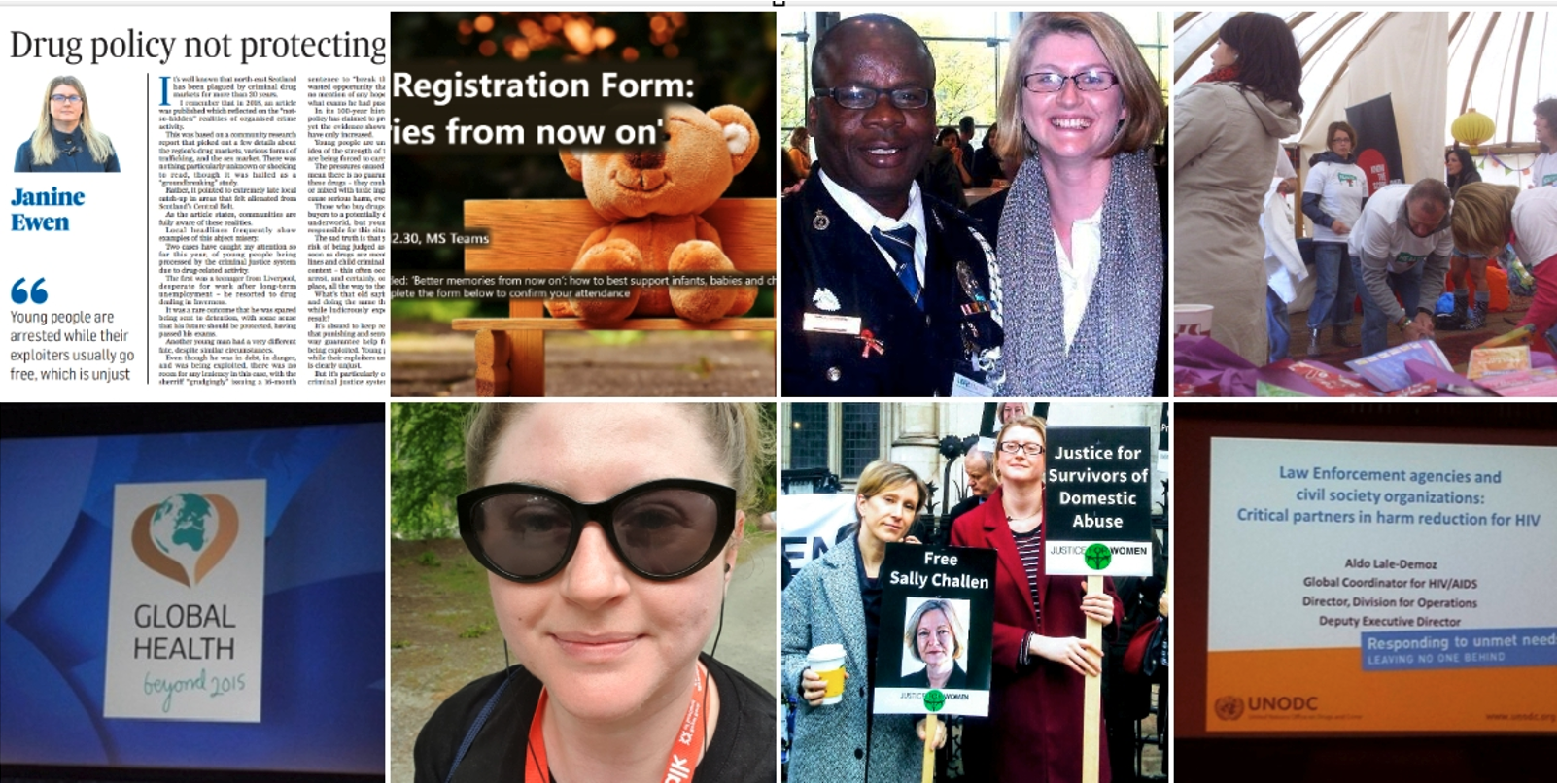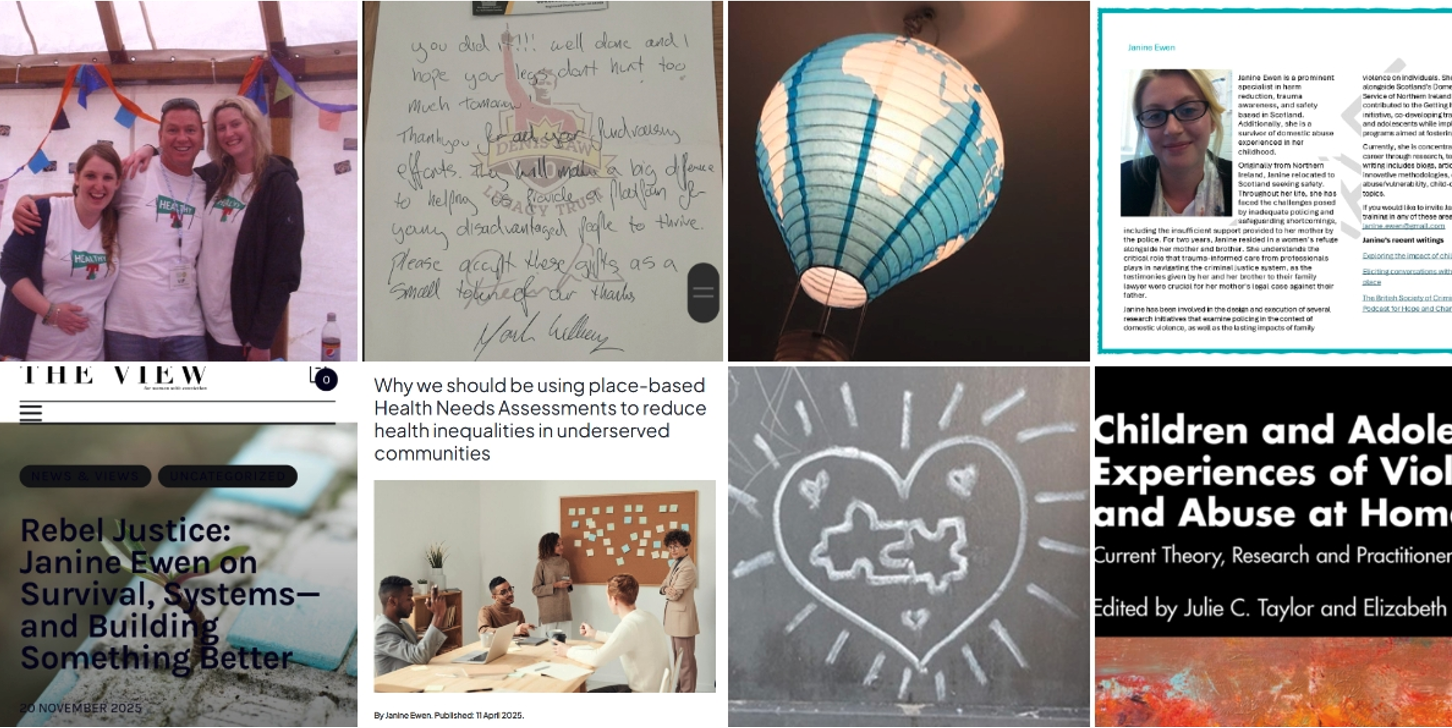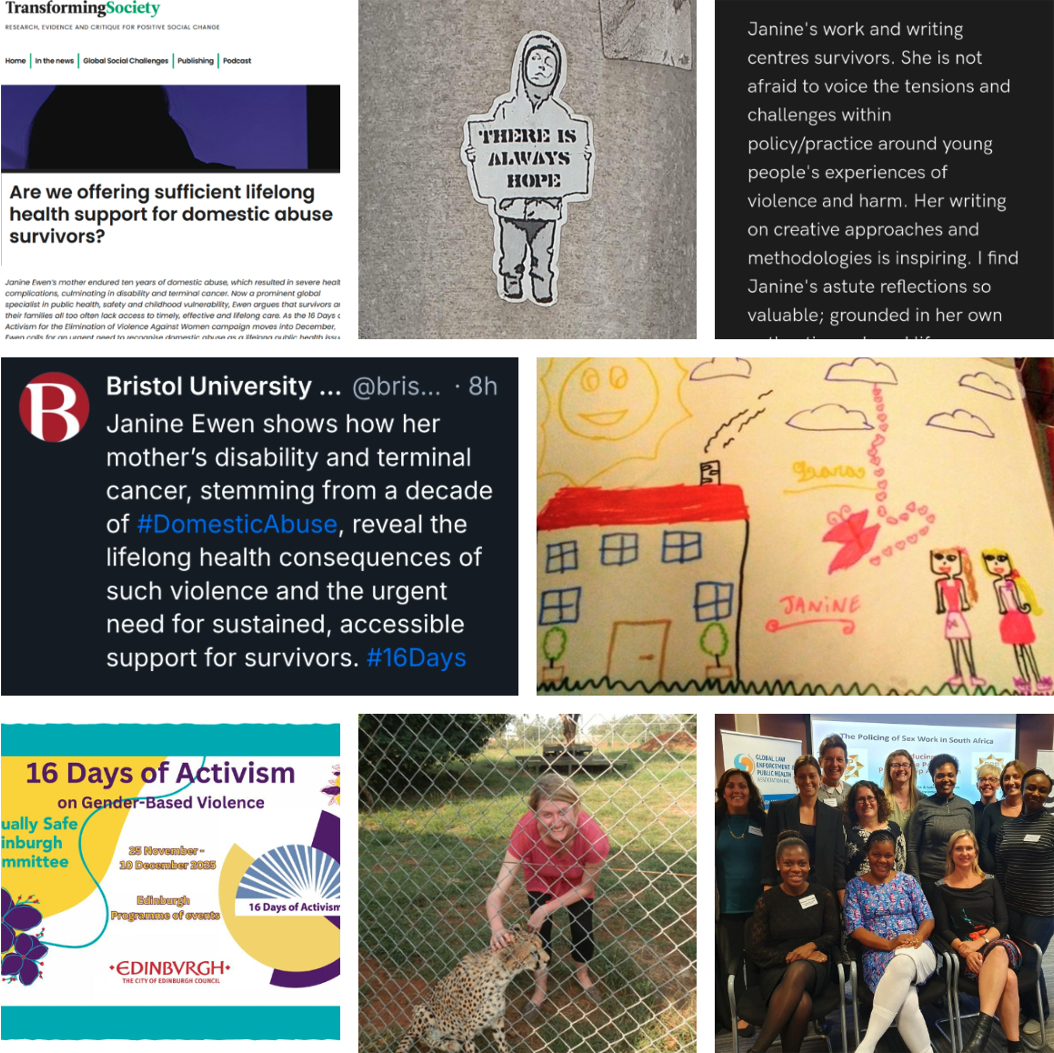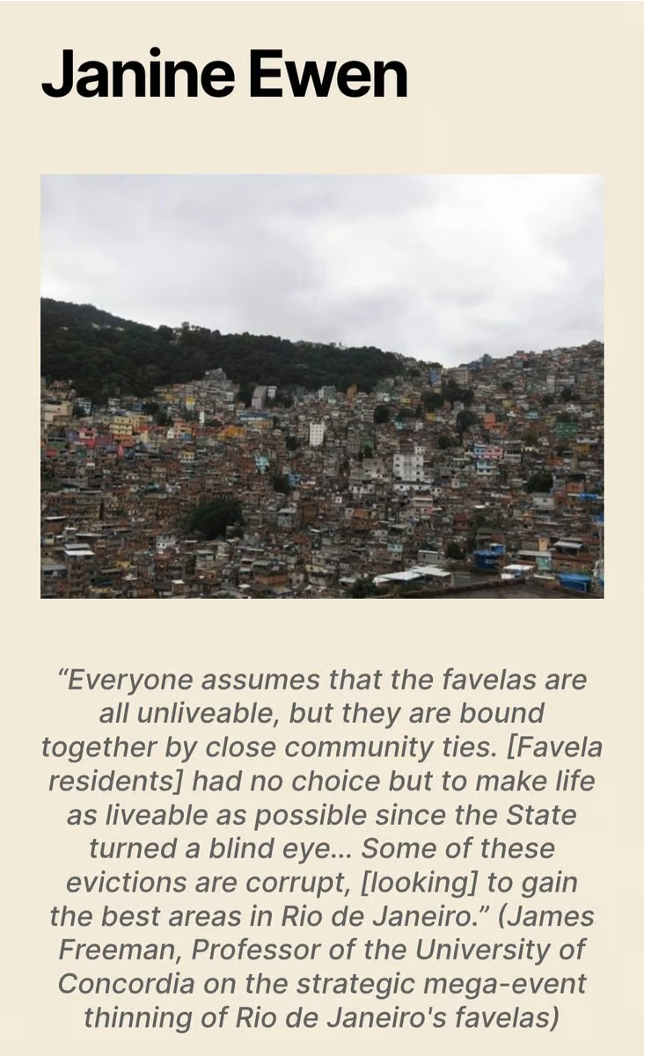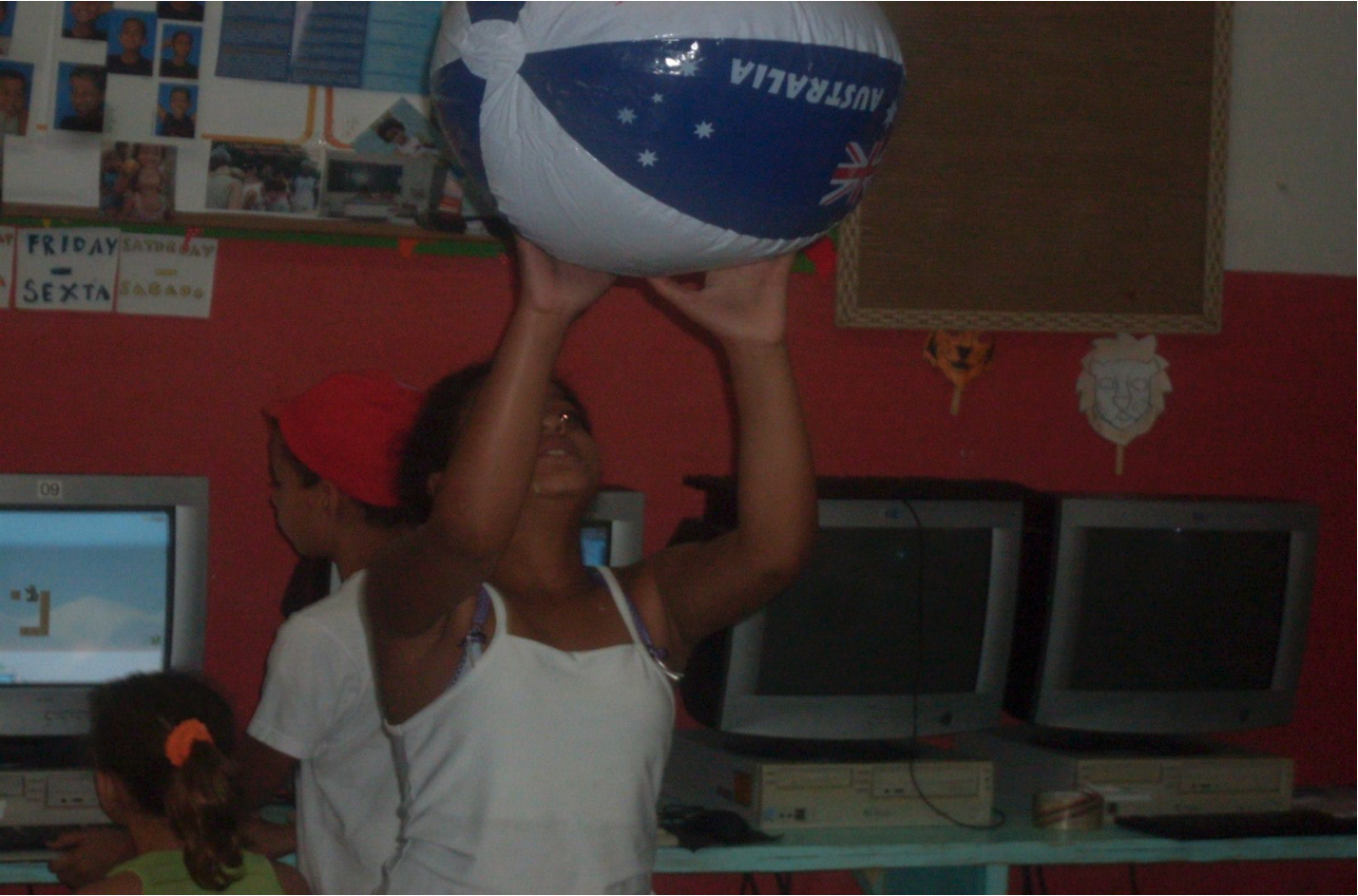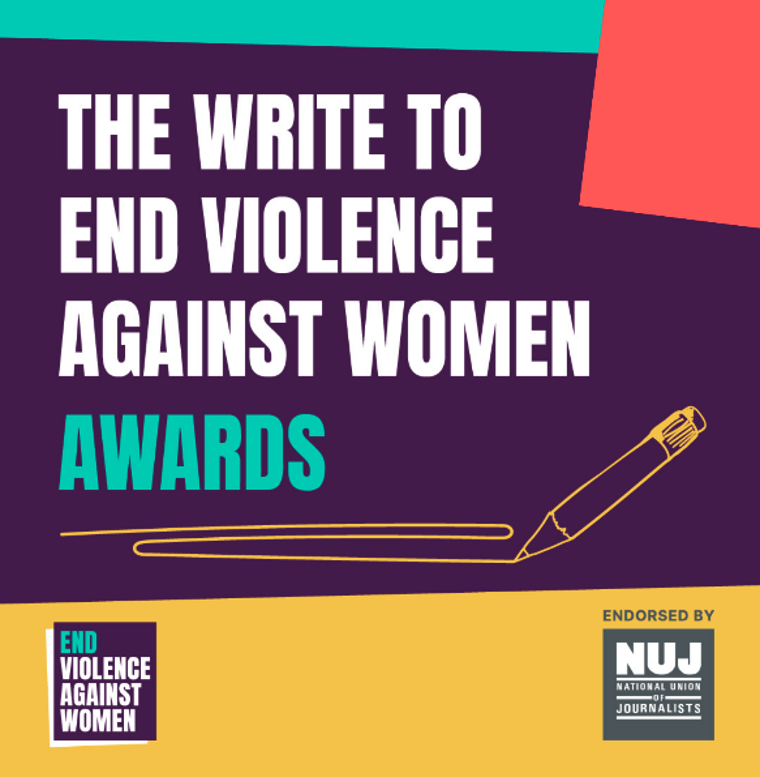
Biography
Janine Ewen, affiliated with the Global Law Enforcement and Public Health Association (GLEPHA), is an emerging public health expert and criminology researcher on a global scale. She is dedicated to assisting undeserved communities at local, national, and international levels.
Janine has been involved with the Law Enforcement and Public Health Network since 2016, contributing by speaking at their conferences and engaging in consultation projects regarding the policing of vulnerable groups across Europe. Her collaborations have included working with international bodies such as the United Nations Office on Drugs and Crime (UNODC) and the Law and HIV Network. Additionally, she played a key role in establishing and co-facilitating Scotland's first gender, safety, and harm reduction program under GLEPHA with Dr Melissa Jardine. The aim of her initial efforts was to create standards for needs-based and solution-oriented policing, focusing on comprehending the genuine requirements of underserved communities while adhering to essential principles when interacting with vulnerable populations (vulnerability from criminalisation, social inequality and intentional exclusion).
Janine began her life in Northern Ireland (NI), where she became aware of the complexities surrounding the ethno-nationalist conflict. Janine grew up in NI before the Good Friday Agreement was introduced to severe tensions. Raised in a community marked by significant divisions and hardships, she continues to reflect on these experiences to motivate efforts for positive change. Her interest in law enforcement responses originated during her childhood, influenced by personal encounters with the Police Service of Northern Ireland (PSNI) regarding domestic abuse. These experiences highlighted the consequences of inadequate policing and protection, as she experienced being physically restrained by officers and saw her mother receive insufficient support from the police. Later, Janine relocated to rural Aberdeenshire with her mother and brother, spending two years in a women’s refuge while going through the criminal justice system. Janine's insights can be explored in greater detail on the British Society of Criminology website and via the Rebel Justice Podcast. Janine’s career achievements were acknowledged on The View website, the only publication by and for women in the criminal justice system.
From those beginnings, Janine forged a career in public health, harm reduction and trauma-informed practice, bringing survivors’ voices into policing, research and policy. Her work champions needs-led, community approaches of the kind that don’t let “the police agenda” swallow care. She’s clear-eyed about what must change: early mental-health support for children, honest scrutiny of frontline failures, and family courts that put safety above procedure.
Survival, Systems—and Building Something Better, The View Magazine, 2025
Janine has participated, collaborated and advised in several studies on policing domestic violence, and on the impacts of family violence on one’s life course. Her contributions on research participation have been published in Children and Adolescent’s Experiences of Violence and Abuse at Home, and she was recently published in the Research in Practice Network on exploring the impact of childhood violence through photographs. This work has been used by youth justice workers and social workers to increase the age of participatory engagement in research for people who have experienced violence and trauma including funding bids to commission lived experience co-production around gangs and exploitation. Furthermore, Janine has engaged in collaboration, presentations, and training for social workers, lawyers, academics, police officers, and substance misuse professionals. Her efforts aim to enhance public health support for young people who have faced trauma by emphasising a ‘child first’ strategy to safeguard these young individuals from harm. Janine is currently working on a new book chapter that focuses on the 'Child First Approach’ to Knife Crime.
With her first-hand understanding of unhealed trauma and criminality/exploitation/unsafe spaces, Janine was featured on the Global Contextual Safeguarding Network – on undertaking experimental creative research methods with young people, involving themes of safety, harm and place. Janine has written about this project as an open access resource for individuals who want to do creative project work with young people on community safety without causing traumatisation. Janine is an advocate for young boys who experience adversity, irrespective of criminality, to create a safer society; she published a review of Dr Jade Levell’s book, Boys, Childhood Domestic Abuse and Gang Involvement: Violence at Home, Violence On-Road, in the first edition of Gender and Justice.
‘We know negative views of young people can be bolstered by social institutions and that, as a result, youth identity is frequently seen as a problem within contemporary society (Dwyer and Wyn, 2001). This is especially the case when young people become involved in gangs. However, the reasons why this happens are not straightforward: the young people are not simply ‘bad’, and judgemental stances towards them exacerbate both the stigma and their behaviour. Levell’s research is a useful corrective to this. It brings lived experience and creative methodologies into the processes of public engagement and dialogue on domestic abuse and serious youth violence. In so doing, it successfully humanizes young boys and young men and liberates them from the reductive ‘gang’ label.’
Additionally, she has also done reviews on books in relation to young people and social harm.
‘Society is strange. We know very well how to make sure young people have better lives, and how we can make communities safer. Yet, in Britain, we do everything to prevent better conditions that would allow young people to flourish. It’s easier to judge, stigmatise and blame them while governments continue to flap their gums about violence prevention and early support. Against Youth Violence: A Social Harm Perspective (Bristol University Press, 2022) by Luke Billingham and Keir Irwin-Rogers is a book that does more than help soothe the feelings of rage and frustration; it aims to improve young lives through solidarity and social justice.’
(Janine for The Sociological Review, 2025)
Janine has played a key role in assisting Scotland in fulfilling its obligations under the 'Getting It Right for Every Child' (GIRFEC) initiative, the national approach in Scotland designed to support the wellbeing of children and young people. Janine conducts guest speaking engagements and training sessions focused on the effects of domestic abuse experienced by children and wider vulnerabilities. In 2025, she was invited to present a workshop for the Edinburgh committee addressing violence against women and girls on this topic. Janine has also been invited to discuss and train professionals on Child Criminal Exploitation (CCE) from her early work in this area.
Janine's raw experiences prompted Police Scotland to address additional issues, including confidentiality breaches and the safety concerns associated with hiding from offenders. Due to manipulation tactics, her family's location was inadvertently revealed, leading the perpetrator to travel to Scotland several times in search of them. This incident highlighted for the Domestic Abuse Taskforce team at Police Scotland the ongoing risks posed by relentless perpetrators and underscored the shortcomings in protection measures implemented by the PSNI.
Janine shared these experiences, along with advice for students and practitioners working in the areas of policing, vulnerability and harm reduction for the Vulnerability and Policing Futures Research Centre. This material has been used by academics for course teaching in harm reduction, including the University of College London (UCL). She also appreciates the importance of having trauma-informed care by professionals while going through the criminal justice system, as Janine and her brother’s testimony to the family lawyer was pivotal to her mother’s court case against her father. Janine was interviewed about these experiences by the prestigious Law Society of Scotland with further conversations regarding the ways in which the legal field can assist victims of exploitation, as well as approaches to enhance community safety, are necessary. Janine was able to reflect on her local, national and global experiences.
‘Numerous individuals face criticism for failing to report crimes; however, possessing genuine empathy can significantly alter this perspective. We need to acknowledge the hesitance surrounding reporting, as there are often valid reasons that prevent everyone from acting. And this can be because of threats and violence. If you were in their position, would you truly claim you would respond differently?
If you cultivate the relationship, future circumstances or viewpoints may evolve for that individual, potentially leading to additional actions.’
(Janine for The Law Society Scotland, 2025)
Having been largely raised in the northeast of Scotland, Janine supported and led several community-led projects and local charities that help women, young people, and children – including Grampian Women’s Aid. Janine’s early work focused on building holistic, trauma-informed support for young people experiencing adversity, including from family violence, harm reduction/drug use, and policing. One of her proudest achievements was developing a specialist service for children and young people dealing with the trauma of domestic abuse; she helped to secure funding for support workers, and to create a warm environment where children and young people can express themselves. Janine has also worked in victim support and has collaborated directly with the Crown Office and Procurator Fiscal Service (COPFS), as well as specialist police force teams. Many of these positions were focused on safeguarding individuals/children/young people from the dangers associated with drug-related activities, violence, gender-based violence and organised crime.
For many years, Janine has been an advocate for individuals engaged in the underground economy to prevent harm and violence against them. In the early 2000s, she directly observed and experienced the early signs of criminal harm associated with the drug trade in northeastern Scotland. This marked the initial stages of what has since escalated into issues intensified by criminal drug networks and later 'County Lines.' She played a key role in promoting proactive harm reduction strategies and peaceful resolutions amidst a backdrop of ideological conflict and increasing criminalisation. Much of this work was about keeping on top of ‘local’ place-based vulnerabilities and fall outs, especially in relation to the points made by Professor Dick Hobbs on how to view and deal with criminal harm and viewing it as intertwined with inequality, crime and addiction in local areas, rather than a situation that suddenly plunges into communities.
Janine possesses significant hands-on practical experience in developing public health assessments, collaborating with police and community partners, executing projects alongside local organisations, and organising non-police-attendance events involving public health and NHS workers. These events provided a platform for individuals with criminal histories to discuss offenses perpetrated against them. A major focus of her work has been to deter individuals engaged in the underground economy from depending on or being exploited by criminal networks, particularly in the context of rigorous policing strategies. Janine recently published a template framework of a health needs assessment for GLEPHA, to show academics, practitioners and students how public health work with under-served populations can avoid becoming an enforcement-led agenda by using specific tactics (also featured by the Vulnerability and Policing Futures Research Centre). She has also written open access and general advice on skills in developing public health projects. Janine has also written about enhanced ethical practices in researching communities impacted by organised crime which was featured in Policing Insight.
‘Being able to distinguish actual rather than perceived needs is crucial. Projects can remain in planning (sometimes over several months) because the police, sometimes with health providers, propose gathering data to fulfil ‘business as usual’ aims (continuing to harm). Don’t be afraid to challenge this situation. If it involves redesigning by going back to the drawing board, that’s a good sign that much more has been taken into consideration. Services might assume that they are in contact with or are supporting X, but this might be a partial reality; or the police might be co-opting welfare support by seeking avenues to continue with punitive actions.’
(Janine for the Vulnerability and Policing Futures Research Centre)
Recently, Janine contributed to the development of a new project focused on organised crime in Scotland. She played a key role in formulating a project aimed at assessing the international risks associated with organised crime due to the establishment of two new freeports in the Scottish Highlands. This initiative is being backed by the National Crime Agency (NCA) and aims to explore the potential implications of County Lines Networks in this context.
Janine’s main police advisory work has been with Scotland’s Domestic Abuse Taskforce Team; she has also liaised with the Serious Organised Crime Taskforce. She has been a visitor to the Scottish Crime Campus and has assisted Police Scotland’s major investigation team. Janine has also worked with the PSNI.
Janine has achieved significant success in her higher education journey, acquiring multiple qualifications in advanced research techniques, public health, criminology, sociology, and leadership and management; she has received top honours in many of these areas. She is eager to maintain an interdisciplinary approach to her academic pursuits.
‘Her commitment, perseverance and initiative in terms of her academic development and the desire to study further was evident throughout the course. Her written work was always clear and concise, demonstrating a sound understanding and excellent analytical skills. Janine’s work was always a pleasure to read, and she usually achieved marks between 84-92 and obtained an overall distinction mark (84).’
(Criminology Tutor)
Janine has been involved in various harm reduction and safety initiatives, including her collaboration with NHS Tayside to establish ‘Healthy T’. Janine was selected from a competitive selection process to help deliver this major public health project. This initiative was a specific section at the Scottish festival T in the Park, aimed at promoting well-being, sexual health education, harm reduction in relation to drug use reduction, as well as encouraging the reporting of incidents related to sexual violence and harassment. The Scottish Government provided funding for this project over a four-year period. This endeavour required cooperation among health services, law enforcement, and welfare personnel to ensure that young attendees could have safe and positive experiences amid what can often be a challenging atmosphere.
Janine has gained international experience through her work abroad. In addition to her consulting roles, she was invited to Brazil on three separate occasions, focusing primarily on Rio de Janeiro and Sao Paulo. During her time there, she contributed part-time to a public health initiative aimed at diverting young people away from gang-related crime and violence in urban favelas by promoting quality education and sports. This experience allowed her to gain insights into Rio’s innovative strategies for addressing drug trafficking issues. Janine has been compiling materials based on her field notes, including the creation of visual content for the sensory criminology teaching resource, which serves as an open-access educational resource for students studying criminology and social harms (Janine has provided this in both English and Portuguese). This content has received favourable feedback for teaching purposes, including from criminology departments globally (qualitative research methods teaching from the Oxford University Department of Criminology).
Furthermore, she received an international grant that enabled her to present at a conference in Rio centred on urban transformation, displaced communities, and social injustices. Janine has also done public health projects in East Africa with communities in urban and real areas, where her grandad was born. Janine learned about the health inequalities in the acute hospitals as well as rural GP practices. Janine worked within teams to deliver sustainable solutions in providing pre-hospital care, and much of this involved teaching in a variety of community settings including schools.
Janine has received multiple scholarships focused on public health, harm reduction, and safety, including from the British Society of Criminology. Additionally, she was granted a distinguished scholarship to participate in the Global Health Post 2015 consultation in Stockholm (Sweden), where she engaged in discussions with representatives from The Lancet and the World Health Organization (WHO). Janine was invited to help influence many of the global agendas on security, safety, global public health and policing vulnerable populations.
Janine has delivered presentations at Queen’s University Belfast and the London School of Hygiene and Tropical Medicine, and she is scheduled to conduct more guest lectures and discussions for students and practitioners involved in public health, policing, vulnerability and childhood domestic abuse. Janine will delivery guest lecturing at the Robert Gordon University (RGU) beginning in 2026 for the criminology/sociology students.
Janine has also received recognition for her fundraising efforts for children and young people, particularly in raising funds for projects to give young people quality development opportunities away from crime and for those who have experienced domestic abuse (e.g. The Denis Law Legacy Trust). Janine was also given an award from the British Red Cross in London.
Janine recently disclosed about her personal experiences grabbling with the later life realities of domestic abuse on her family, more so in relation to her mother’s ill health from the violence and trauma she experienced. Janine was invited to contribute to the Bristol University Press, ‘Transforming Society’ real voice section for their edition on the ’16 Days of Activism’ on Gender-based violence (Are we offering sufficient lifelong health support for domestic abuse survivors?). This work was also acknowledged by the Violence Against Women and Girls Research Network (VAWRN). This piece of writing has been nominated for the Write to End Violence Against Women Awards 2026.
Our existence is not dictated by our history; however, the past (including trauma) has a troubling tendency to resurface, triggering other bad events in our lives. While I don’t want to foster a notion that all situations will culminate in failure, or that individuals cannot fully recuperate, it is important to acknowledge that some may not have a fairytale ending. I have conversed with others who have experienced my circumstances, particularly in relation to both providing care for and losing a loved one due to a disability and other illnesses associated with domestic abuse.
We might consider confronting this reality openly and honestly to ensure that timely assistance, particularly in terms of health and wellbeing, is always available for survivors when they require it.
- Janine for Transforming Society, 2025
Janine is available for consultancy work and guest lecturing in the following areas:
- Reducing harm for children and young people
- Gender-based violence
- Reducing the impact of harm from organised crime
- Harm reduction/needs-led work
- Advancing public health and ethical principles
For more information, contact Janine at: janine.ewen@gmail.com


